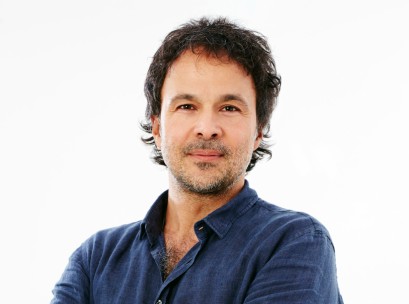![]() Turning unique selling points into emotional selling points and the commoditisation of convenience are the main themes to watch out for in 2018, according to online retailer The Iconic’s chief marketing officer, Alexander Meyer.
Turning unique selling points into emotional selling points and the commoditisation of convenience are the main themes to watch out for in 2018, according to online retailer The Iconic’s chief marketing officer, Alexander Meyer.
Speaking at a panel during Criteo Exec Connect 2018 – attended by 40 major APAC commerce players, including Lazada, Expedia, Flipkart and Indian retailer Nykaa – Meyer said the market can also expect “a lot more online smarts to go offline” as e-commerce players turn to stores, pop-ups and offline initiatives, informed by digital learnings to further define the shopping experience of the future.
Meyer also described the “absolutely crazy price competition” across Australia and New Zealand as “the new normal”, similar to the US marketplace.
“In that same way, we will see that convenience will be commodotised,” he said. “How can you turn unique selling points into emotional selling points and how can you – as a retail company – partner, or an ecosystem building-platform or mean something to customers and stick out through the noise?”
While reflecting on the convergence of online and offline shopping platforms, Meyer added a thought from his time working at shoe brand Vans and learnings from a multi-million dollar global research project.
“The times of a customer being loyal to one retailer or one brand is over,” he said.
“People who in the past would have only shopped at a Footlocker, Sport Chek, Decathlon or an Amazon – [they don’t] exist anymore.
“For different reasons and different contexts, people shop at different retailers, so you see somebody shop at a high premium boutique, but also at convenience based online retailers for different types of products. The thing that brands are trying to do is really segment their product ranges respectively.”
On the topic of brand loyalty, Meyer commented: “I think loyalty is dead, but long live loyalty – so it’s dead as we know it, but still possible to achieve from a different angle, through an always-on connection you can create with your customers.”
According to Meyer, cross-device shopping behaviour is a “fascinating phenomena”.
“For example, a majority of The Iconic’s shoppers use the company’s shopping app to search for products and then often end up closing sales on desktops.
Commenting broadly on The Iconic’s rapid growth, Meyer said the company is still catching up “on a lot of in-depth development”.
“For the biggest part, we are still a retailer that buys product from brands but in the last two years we’ve introduced a marketplace model that has grown tremendously. The interest is there. It gives us a lot of chance to diversify our product range,” he said.
“But the challenge that we see with marketplace as whole, similar to all marketplaces, is that it is is still a challenge to live up to the same delivery USPs [unique selling proposition] that we can live up to as a retailer with indent product.
“So when we buy the product, we can, of course, deliver as per defined trackable timelines, whereas through the marketplace model, we can not always live up to the same. So in Australia, we are known for [our] three-hour delivery in Sydney and same day delivery in all the major cities…With a marketplace partner, it most of the time works out well but sometimes it might take up to four days sometimes or maybe even up to two weeks in the worst case.”
Speaking after the panel to Inside Retail, Meyer said on-time delivery is a huge priority for the company, assering The Iconic’s indent business model is built around this delivery promise.
“Marketplace presents a challenge – as it does for all marketplace platforms – so we use machine learning to predict delivery times per seller, per postcode to ensure customers receive accurate delivery estimates when they purchase marketplace products,” he said.
“This replaces customers receiving a generic delivery window of say 2-5 days. We’ve also introduced new tracking technology to hold our sellers accountable for their SLA, which enables us to tackle the issue of marketplace delivery from both ends.”
Meyer said marketplace is a huge growth opportunity for the retailer.
“Our tech team is constantly working to improve external tracking so that customers receive the same seamless and on-time delivery across the board.”
The summit also saw Criteo launch its Reseller Program in APAC, with e-commerce sales in the region expected to exceed US$3 trillion and account for over 25 per cent of total regional retail sales by 2021, according to eMarketer research. Across the APAC region, close to six in 10 shoppers purchase products on online marketplaces.
According to Criteo’s Commerce & Digital Marketing Outlook 2018, people will increasingly shop using voice devices and the market for smart speakers will become saturated, with the likes of Google and Amazon competing with devices from companies such as Harman Kardon and Cortana from Microsoft, Apple’s HomePod, Google’s Home Max and Facebook’s Aloha.
Brands and retailers are also increasingly concerned about walled gardens of data from tech giants like Amazon and Facebook, according to Criteo, with three-fifths of retailers already part of a data collaboration initiative and pooling non-personally identifiable data to better connect with shoppers.
Access exclusive analysis, locked news and reports with Inside Retail Weekly. Subscribe today and get our premium print publication delivered to your door every week.







